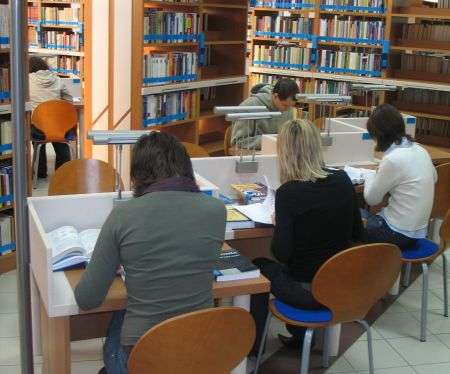The reasons that university students do sport

The University of Seville researcher Carolina Castañeda has carried out a study in which she analyses the relationship between university students and sport and physical activity. It reports the main reasons that students participate in sports, stop participating, or never participate, thus revealing possible differences between these reasons according to gender.
The study used a sample of 1085 students from the University of Seville, of which 569 were women. The average age was 21, using a random sample classified according to faculty and sex, and an ad hoc questionnaire collecting the social, environmental and individual variables that determine aspects of sport practice including the choice of one or more activities, frequency, intensity and persistence, among others. "The study of these variables is a key factor in favouring students taking up sport, sticking to it and not giving it up, as it reveals why students choose some activities and not others, and the factors that determine whether they decide to continue a sport or to abandon it," the researcher says.
The results obtained show that the students who do some physical or sports activity mainly value health and social relationships. The most valued reason was keeping in shape, closely followed by health, personal satisfaction and enjoyment. However, there were significant differences between the reasons most valued by the university's male and female students. The male students tended to choose reasons connected with enjoyment and social relationships, while the female students weighted aspects related to health and appearance. This seems to support a tendency noted in earlier studies analyzing what motivated male and female university students.
With respect to the motives for nonparticipation, including those who had stopped participating and those who never started, the most frequently cited reasons were external, related to availability in terms of scheduling, lack of time, and feeling tired from work or studies. Those who had never done any sports activity also highlighted important factors like laziness or lack of desire, causes related directly to the dislike of physical and sports activities.
In addition, significant differences were observed between male and female university students who has stopped doing physical activity. The female students valued more than the males a wide variety of activities suited to their interests and needs, as this was a more influential factor for them when it came to giving up sport participation.
As has been observed in numerous studies, the lack of time, along with unwillingness and lack of desire are the most oft-cited reasons by those who do not participate in physical or sports activities in all the age ranges. The first case comprises an external factor, and the others are internal. However, all are determining factors for the level of participation in physical activity, though all would be manageable from an educational point of view. "In the case of lack of time, it should be possible to improve time management and increase the offer of sports activities to make them available at more accessible times for the students. The other cases are more connected with dissatisfaction with physical activity and the lack of satisfaction when meeting specific needs. They should manageable by providing a wider offer of activities, more in line with the interests of this group," Castañeda says.
Knowing these reasons, therefore, is vital for being able to develop effective long-term intervention programmes that make it possible to make doing physical and sports activities part of the healthy lifestyle of young university students.
















